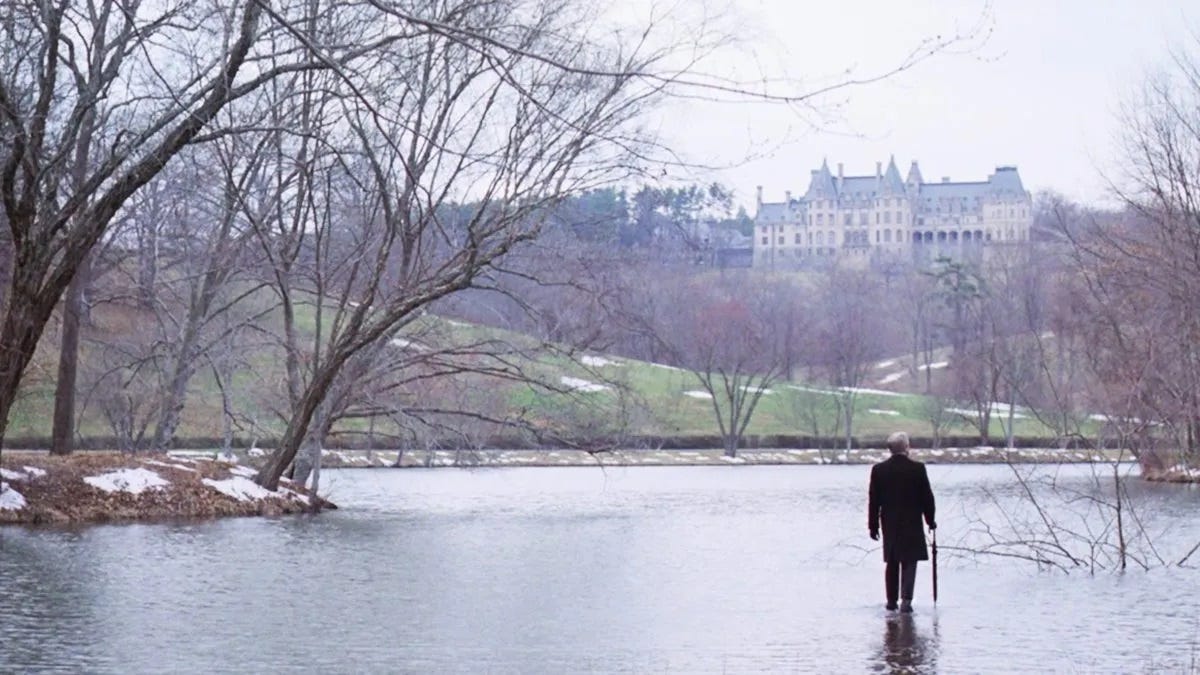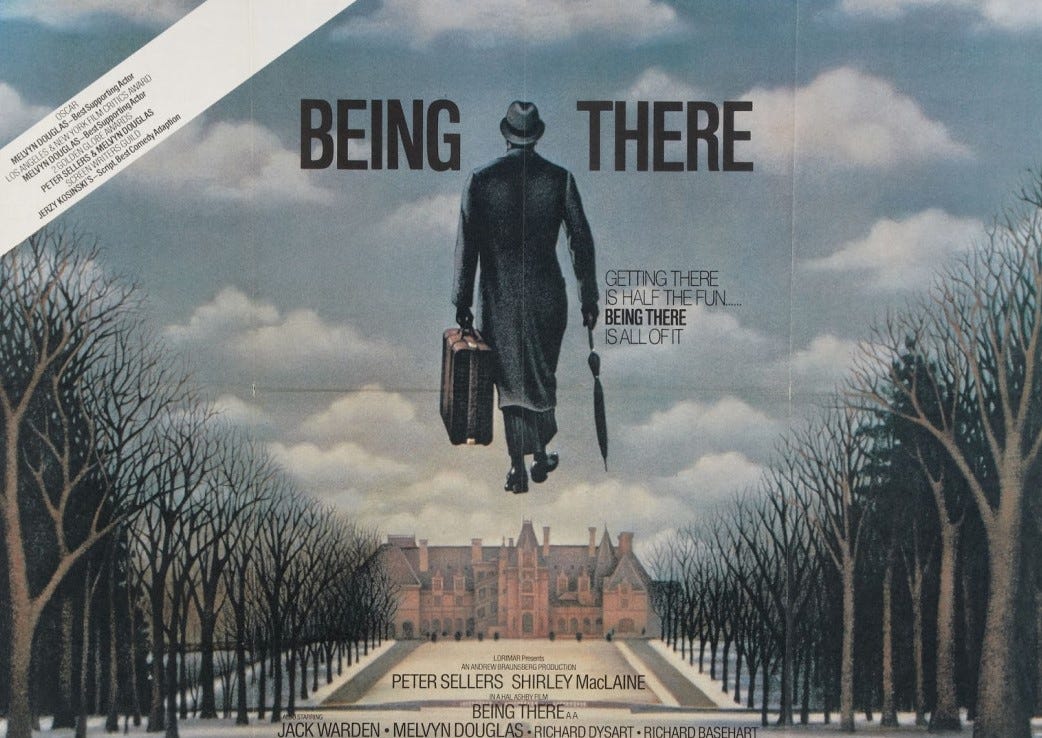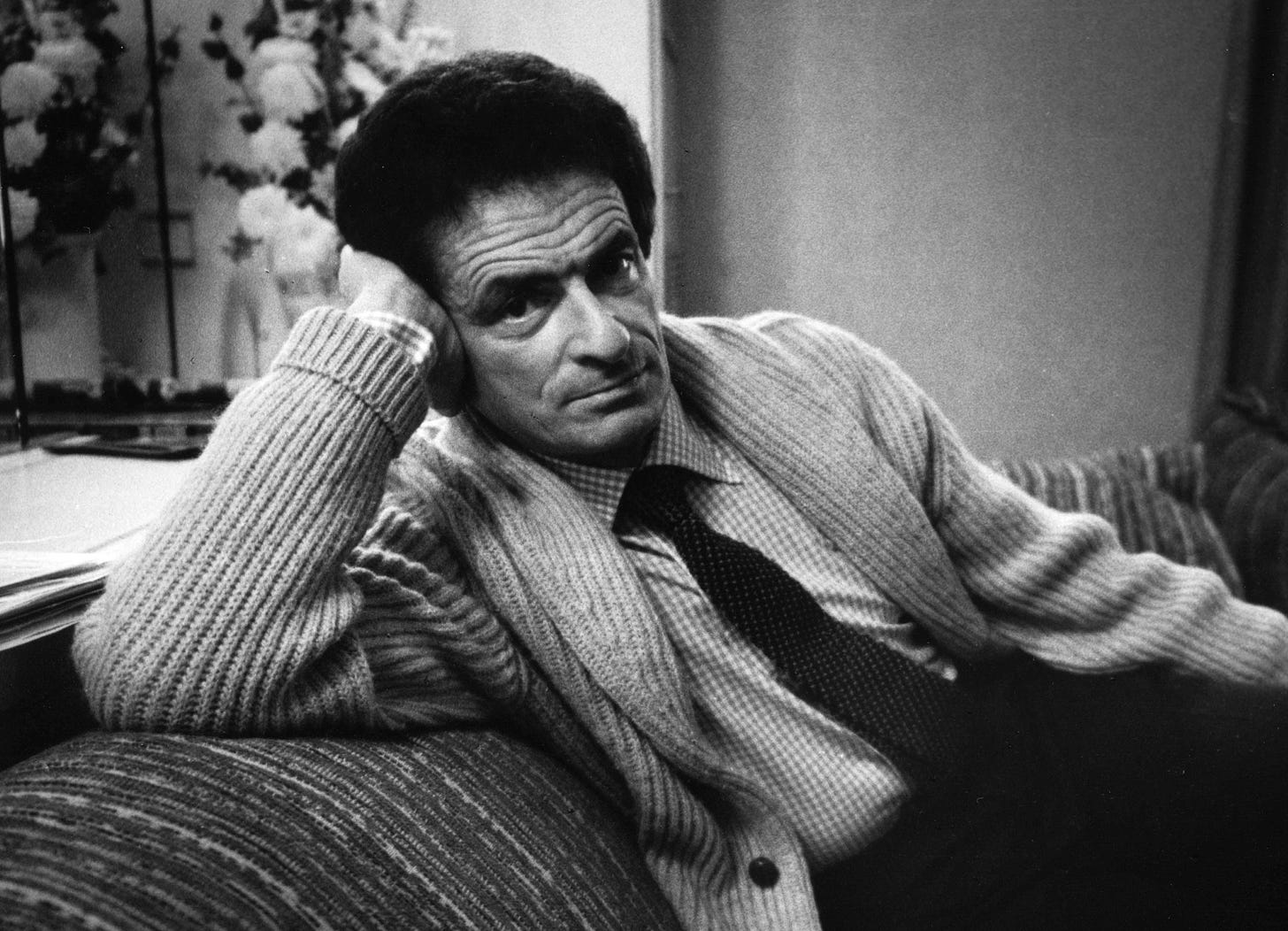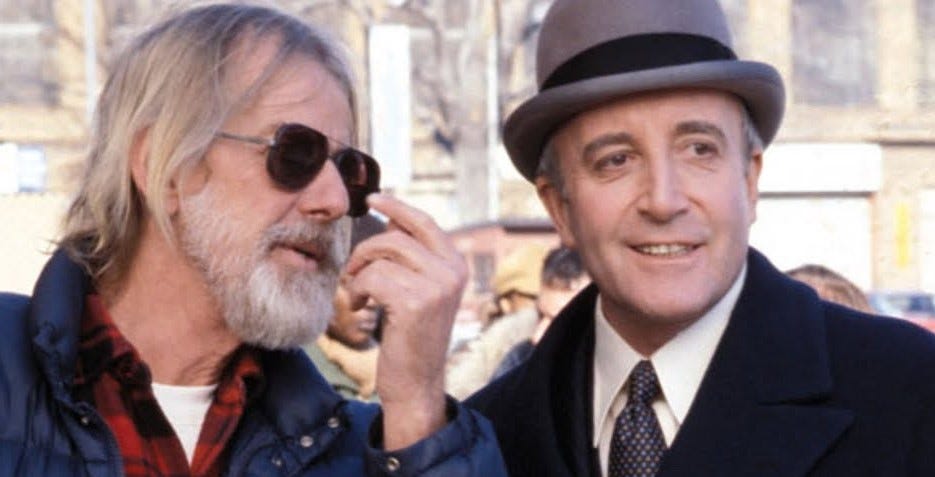Being There: Life is a state of mind
"Being There," the 1979 film written by Jerzy Kosinski and directed by Hal Ashby, remains quite a unique film to this day. It gives you pause and time to just - ya know - be there for a while.
“Being There,” starring Peter Sellers in one of his best performances (and that's saying something!), is a comedy - satire, if you will - but it is also something more. With its gentle protagonist, it is, it feels, deeply philosophical - and in the end, with its final iconic sequence, even mystical.
I had just recently seen the film again and realized that I remembered nothing about its writer. As it turns out, Jerzy Kosinski (who adapted his own novel) was one of more than a few authors who only wrote one screenplay in their career (like, for example, Dashiell Hammett and Charles Bukowski). Having adapted a few novels for the screen, I know a thing or two about the process - and know that authors generally are too closely tied to their novels, unwilling and thus unable to properly adapt a story from one medium into another (here’s a notorious example of what can happen). Frankly, I’m always amazed when an author pulls it off.
Jerzy Kosinski (born Jósef Lewinkopf in Poland) lived a storied life - one that took him through the horrors of the Holocaust, through life behind the Iron Curtain and finally to the United States of America … with forged documents. I can only recommend reading up on Kosinski’s biography - it is the story of a boy, then a young man, who clearly was immensely enterprising - he had to be to survive. In a 1982 Times Magazine article he was described as “the ultimate survivor and that,” of all the Holocaust survivors the author of the article knew, “Kosinski was both the most damaged—psychologically and physically—and the most candid about it.”
We are products of our experiences and no doubt Kosinski’s life, his writing, and his eventual suicide, have more than a few things to do with his formative years. In his final years he suffered from several illnesses and from - most likely false - accusations of plagiarism (recounted here in the LA Times obituary). He was also increasingly worried that he would become a burden to others. He took his own life at the age of fifty-seven, leaving behind the following note: “I am going to put myself to sleep now for a bit longer than usual. Call it eternity.”
When Kosinski’s hero, Chance the Gardener (Chauncey Gardner), came together with director Hal Ashby (who also gave us, among others, the wonderful Harold and Maude), movie magic was in the making.
Screenwriting legend Robert Towne (he of Chinatown) once said the following about Hal Ashby: “In a way, Hal was Chauncey Gardner, he had an innocence to him, a child-like quality. There was something about him that was pure. The remarkable thing about Hal and his work, is that it’s still so relevant, the films don’t age.”
It was Peter Sellers himself who, in 1973, gave the novel to Hal Ashby to read. The director was interested but couldn’t get the money to make the film. In this clip he recounts that lots of people just didn’t understand it, calling it a one-joke movie. A few years later, “Coming Home” had just become a huge success, Being There was suggested to Ashby again and things came full circle. Ashby agreed to direct under one condition: Peter Sellers had to play the role.
The rest is movie history. Spend a bit of quality time in the company of a man who knows nothing about the world other than gardening - and whatever he’s picked up from watching television. He is simple, he is polite, he is content, and he is always, always honest. The movie remains beloved to this day, not just because it is excellent, but also because it’s timeless and thus, always timely.
PS: There’s an anecdote about the credits sequence of the film, where the director chose to stick in a blooper with Sellers dropping character time and time again because he had to laugh to so much. It is very funny to watch … but Sellers - and I think he’s right - said afterwards that he thought the presence of that blooper cost him the Oscar. With that one moment, that mystical character became something less unique again … too bad - the Oscar would have been well deserved.












Nice one D